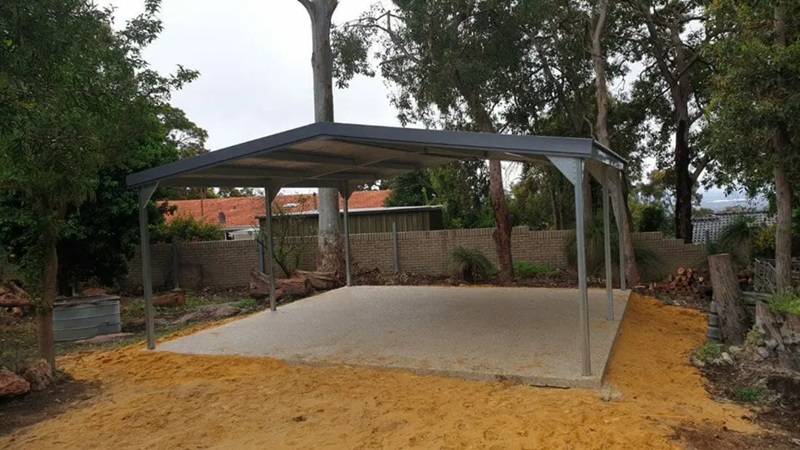Comparing and Contrasting Various Types of Shed Slabs Which is Best for You?

Introduction:
Building a shed in your home? Kudos to you for taking matters into your own hands. But have you put enough thought into the foundation that your shed will rest on? This could be the difference between a sturdy long-lasting edifice and a disappointing, shaky structure that puts your possessions at risk. The most common foundation for a shed is a slab – but what kind? Concrete? Wooden? Gravel? Pavers? Which is the most reliable, cost-effective, and suitable for your specific home improvement needs?
In this comprehensive blog post, we explore different types of shed slabs, offering you all the information you need to make an informed and ideal choice for your backyard oasis. Let’s get started with the comparison party, shall we?
What are the Various Types of Shed Slabs?
Concrete, wooden, paving stones, and gravel – the list of possible shed slabs is as diverse as the requirements of the homeowners who utilize them. What matters is matching your shed goals with the appropriate foundation.
Concrete slabs are robust and reliable. They’re perfect for heavy, large sheds or those situated in relatively wet climates. Wood foundations offer flexibility and affordability, although they may require waterproofing for sustained durability.
Paving stones look fantastic and are easy to install, but might not be the optimum choice for hefty sheds. Gravel slabs are affordable and hassle-free but demand a level surface for ideal installation.
The Pros and Cons of Concrete Shed Slabs
Concrete slabs are renowned for their durability and sturdiness. They can accommodate just about any shed structure, from robust metal sheds to hefty wooden sheds. However, the process of pouring a concrete slab can be laborious and could potentially require professional assistance. While cost-effective in the long run, the initial price can be significantly higher than other options.

The Beauty and Limitations of Wooden Foundations
Wood foundations have an alluring charm, adding character to conventional sheds. They are flexible, as they enable you to place your shed on uneven ground if needed. However, wood foundations require regular maintenance, including sealing to deter insects and rot.
Delving into Paver Shed Slabs
Paver slabs are an attractive choice for homeowners seeking to add aesthetics to functionality. They can be arranged in a variety of patterns to complement your home’s design scheme. Nonetheless, paver slabs may not hold up well under heavyweight constructions, and they can become unintentionally displaced over time.
The Simplicity and Shortcomings of Gravel Shed Slabs
Gravel slabs are a breeze to install and could be the most affordable option for your shed. They provide excellent water drainage, which could help avoid rot and mold issues. However, they may not provide as stable a foundation as concrete which could lead to a slightly unstable shed if not properly installed.
Going Green: Eco-Friendly Shed Slab Options
Let’s not forget about the environment as we design our sheds. There are many eco-friendly slab options available, like recycled plastic grids filled with gravel or grass. They merge sustainability with functionality, fostering a green shed-scape.
Conclusion:
Choosing the right shed slabs relies heavily on each homeowner’s unique needs. The sturdy resilience of concrete, the flexibility of wood, the appeal of pavers, the simplicity of gravel – each slab type has its benefits.
For those considering a green approach, eco-friendly alternatives offer added sustainability. Whatever your preference, carefully considering this foundational element of your shed construction will surely repay dividends in the longevity of your structure. Make your choice and let the magic of home improvement continue to flourish!